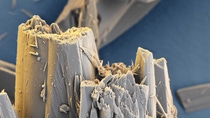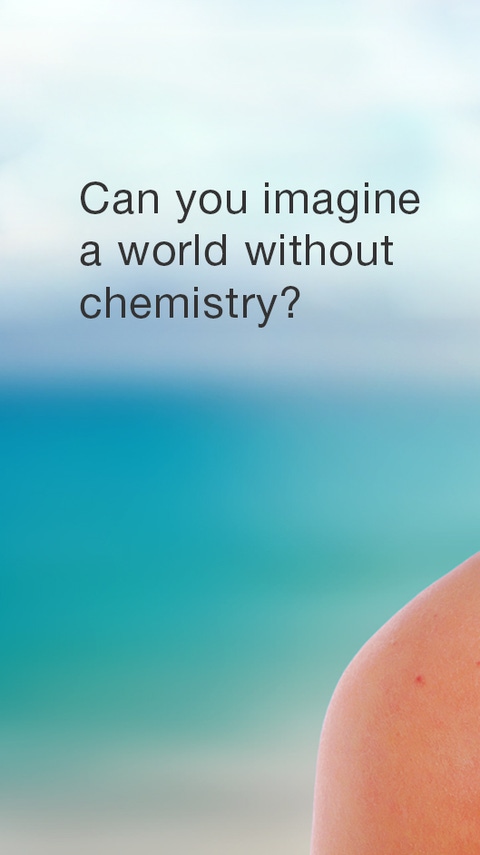Who we are
Chemistry protects our skin
If there were no chemistry, the beach on a sunny day would only be a part of our imagination. We would have burns, our skin would be damaged, and we would age much earlier.
Plants love sun. Humans love sun. Everybody loves sun. But sun can be very harmful, too. Human skin is vulnerable, and that is why it is important to protect it from sun's ultraviolet (UV) radiation. Luckily, chemistry has got us all covered – with sunscreen, of course.

The chemistry of sunscreen and how it protects our skin
The sun emits different UV rays that are distinguished by their different wavelengths into types such as UVA or “aging rays” (ultraviolet radiation with a wavelength between 320 and 400 nanometres) and UVB that causes our skin to burn (ultraviolet radiation with a wavelength between 290 and 320 nanometres).
The main ingredients of sunscreen are chemicals. Those chemicals are called UV absorbers and their main purpose is to absorb the harmful UVB and UVA rays and make them harmless to our skin.
The best sunscreens include both UVA and UVB absorbers. That is where BASF steps in. BASF offers a broad spectrum of effective, up-to-date UV filters designed for incorporation into a wide range of sun-care formulations covering all skin types and all situations – from intensive sun exposure to daily prevention of sun exposure.

UV filters do a difficult job. They are expected to provide reliable protection against the different UV rays. Sunscreens and care products must feel pleasant too. Excellent scientific know-how is necessary to meet all demands. A combination of effective UVB, UVA, and/or broadband filters that provide overall protection has become a must. Clothing and textiles are a good example of this since they uniformly reduce the entire UV range radiation on the skin.
The first sunscreens and their UV filters focused only on preventing UV erythema, otherwise known as sunburn. Now, sun care products do much more. Modern UV protection has two pillars: one focuses on cosmetics and the other on health. Health is about reducing the risk of skin cancer. In the cosmetics pillar, UV radiation is one of the key reasons why skin ages prematurely, why wrinkles develop, and why we look older than we actually are.

